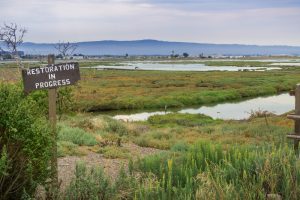On March 12, 2025, the EPA announced it will work with the U.S. Army Corps of Engineers (Corps) to deliver on President Donald Trump’s promise to review the definition of “waters of the United States” (WOTUS).
“The agencies will move quickly to ensure that a revised definition follows the law, reduces red tape, cuts overall permitting costs, and lowers the cost of doing business in communities across the country while protecting the nation’s navigable waters from pollution. Given the U.S. Supreme Court’s watershed decision in Sackett v. Environmental Protection Agency, it is time for EPA to finally address this issue once and for all in a way that provides American farmers, landowners, businesses, and states with clear and simplified direction,” according to an Agency news release.
The Sackett decision stated, “Wetlands that are separate from traditional navigable waters cannot be considered part of those waters, even if they are located nearby.”
In December 2024, the previous administration “revised the rule to respond to longstanding requests from state and tribes to clarify processes for assuming these types of permits,” the Florida Specifier noted. “The agency stated that the 216-page rule revision will facilitate state and tribal assumption, ‘by making the procedures and substantive requirements for assumption transparent and straightforward.’
“However, experts have suggested that this new rule would allow the federal government to continue controlling permitting over waterways used for commerce and adjacent wetlands, making it unlikely that states will participate.”
Under the Clean Water Act (CWA), the WOTUS definition determines which projects require permits before they can be pursued.
According to the current administration, the “EPA has failed to follow the law and implement the Supreme Court’s clear holding in Sackett. It is critical that Americans know which waters are subject to federal jurisdiction under the [CWA] to grow our economy and lower costs for American families while protecting human health and the environment.”
Recently released guidance by the Corps and the EPA states that “an interpretation of ‘continuous surface connection’ which allows for wetlands far removed from and not directly abutting covered waters to be jurisdictional as adjacent wetlands has the potential to violate the direct abutment requirement for ‘adjacent wetlands’ under the plurality’s standard and now Sackett’s endorsement of that standard. Therefore, any components of guidance or training materials that assumed a discrete feature established a continuous surface connection are rescinded.”
According to the Agency, it will start its review by “obtaining input from stakeholders who were sidelined during the previous administration.”
The review will seek targeted information on the key challenges Americans are facing.
“The agency will also undertake a rulemaking process to revise the 2023 definition of [WOTUS] with a focus on clarity, simplicity and improvements that will stand the test of time,” the EPA’s release says. “While this rulemaking process proceeds, the agency will provide guidance to those states implementing the pre-2015 definition of [WOTUS] to ensure consistency with the law of the land.
“A priority for the Trump Administration will be working cooperatively with state partners, empowering them and local officials to protect their treasured water bodies while accelerating economic opportunity. As a result, decisions will be made efficiently and effectively while benefiting from local knowledge and expertise.”
Environmentalists fear wetlands will be irreparably damaged through a narrow interpretation of the Sackett case.
“Rollbacks of wetland protections weaken our natural defenses, making us less safe, increasing the cost of living and undermining critical environmental benefits,” said Will McDow, the Environmental Defense Fund’s (EDF) associate vice president for climate-resilient coasts and watersheds, in a statement released by the organization. “The American people rely on wetlands to protect us from dangerous flooding, purify water and provide critical habitat for many of the fish we eat. Stripping protections for wetlands means Americans will pay the price with more frequent downstream flooding, reduced water quality and ultimately higher insurance and food costs when wetlands are lost.”

